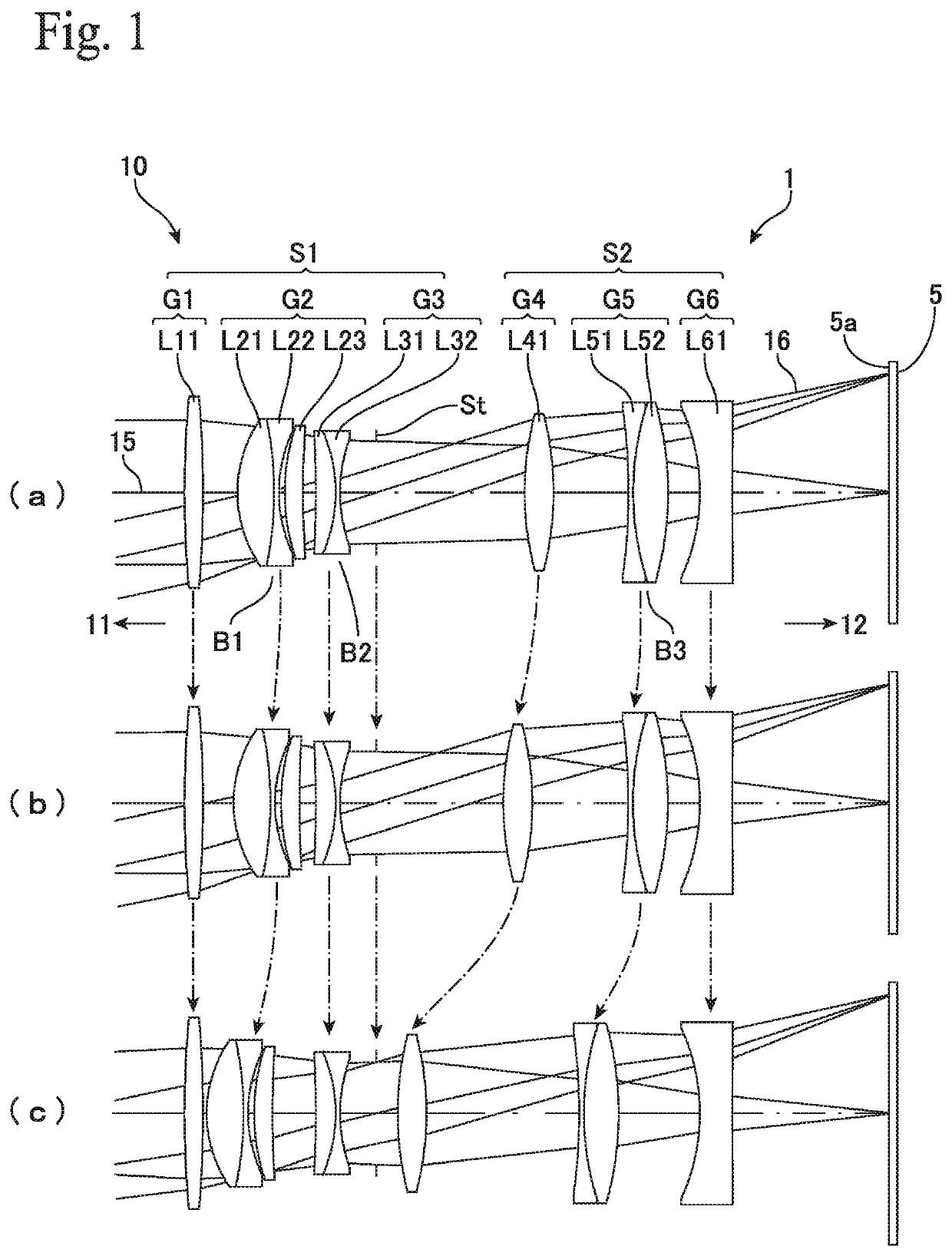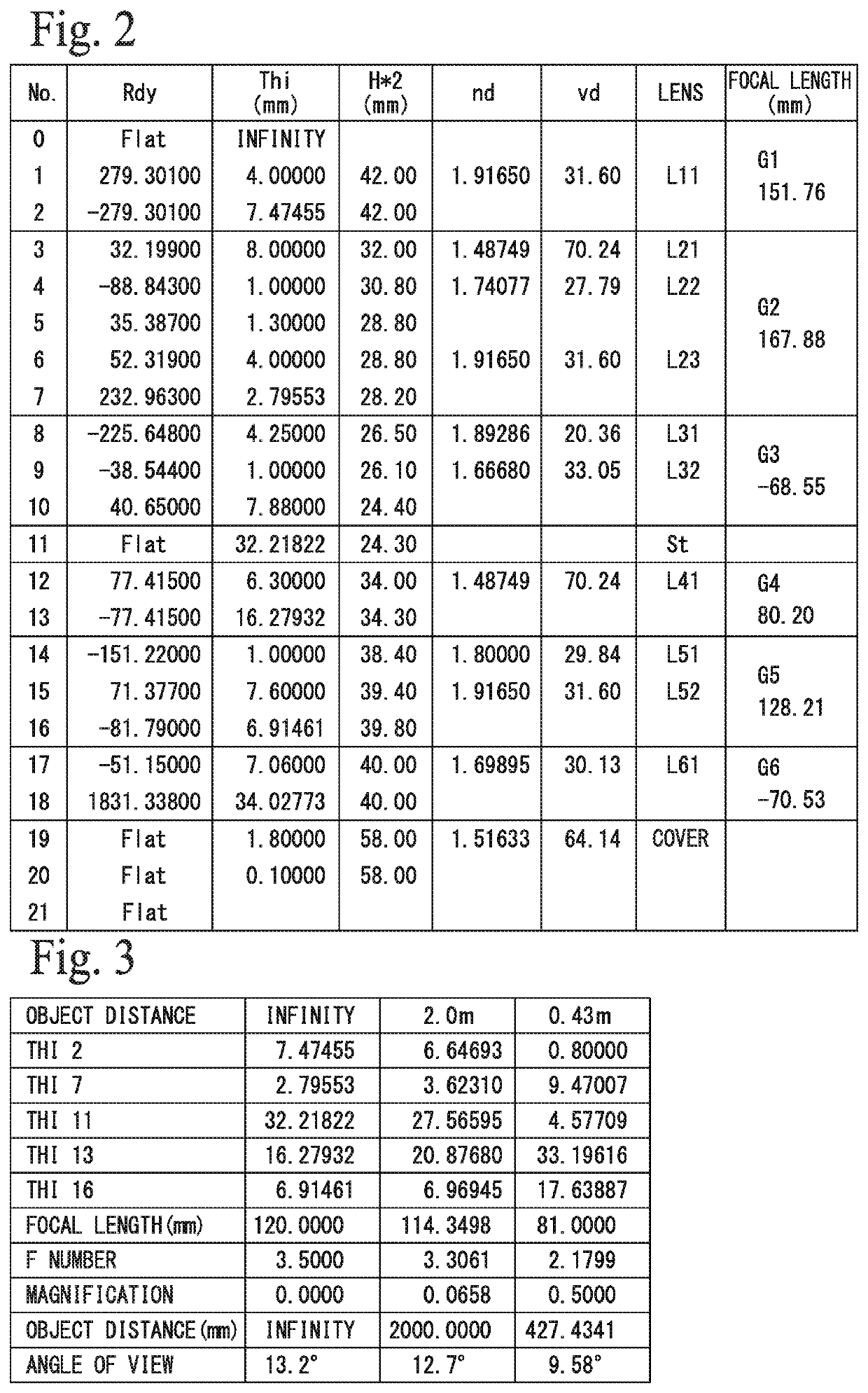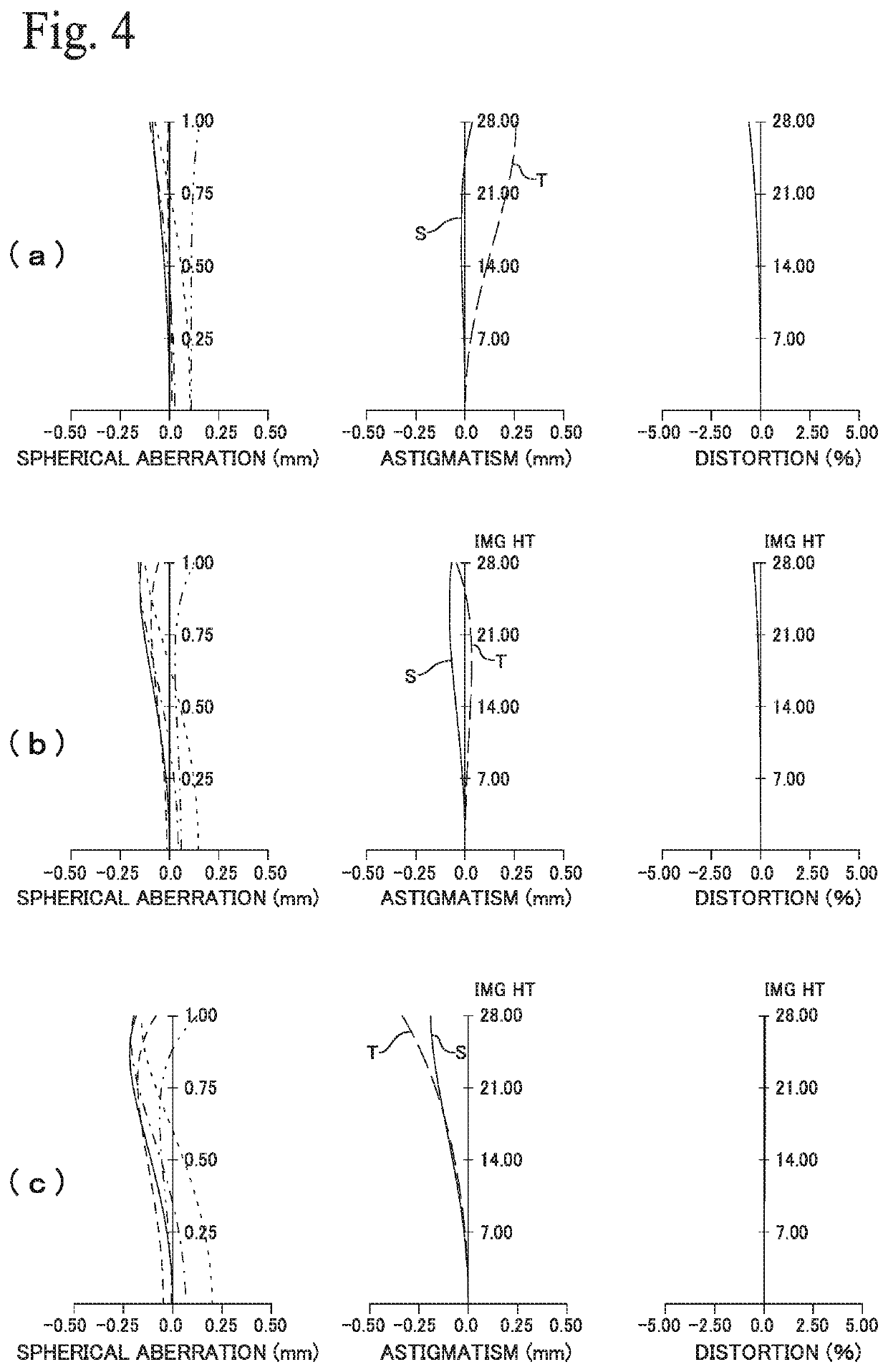Optical system for image pickup, and image pickup device
a technology of optical system and image, applied in the field of optical system for image pickup, can solve the problems of reducing the focusing speed, increasing the load on the af system, and affecting the focusing speed, so as to reduce the focusing speed, increase the load on the af system, and increase the overall length
- Summary
- Abstract
- Description
- Claims
- Application Information
AI Technical Summary
Benefits of technology
Problems solved by technology
Method used
Image
Examples
example 1
[0039]The optical system 10 depicted in FIG. 1 includes a first refractive optical system S1 disposed on the object side 11 with respect to the aperture stop (stop) St and a second refractive optical system S2 disposed on the image plane side 12 with respect to the aperture stop St. The first refractive optical system S1 is composed, along the optical axis 15 and in order from the object side 11, of the first lens group G1 that has positive refractive power, a second lens group G2 that has positive refractive power, and a third lens group G3 that has negative refractive power. The first lens group G1 has a single-lens configuration composed of a biconvex positive lens L11, and the second lens group G2 has a three-lens configuration composed of a balsam lens (cemented lens), which is made up of a biconvex positive lens L21 and a biconcave negative lens L22, and a positive meniscus lens L23 that is convex toward the object side 11. The object side 11 surface of the meniscus lens L23 i...
example 2
[0057]FIG. 5 depicts an example of a camera 1 provided with a different image pickup optical system 10. This optical system 10 performs as a telephoto-type macro lens as well as the optical system (lens system) according to Example 1. The basic configuration of this optical system 10 is the same as the optical system of Example 1 depicted in FIG. 1, and is an optical system 10 that is an inner focus type where the total length LA is constant, where the lens groups G1 to G3 that have positive-positive-negative refractive powers are disposed on the object side 11 and the lens groups G4 to G6 that have positive-positive-negative refractive powers are disposed on the image plane side 12 with the aperture stop (stop) St in between, and where the lens groups G2, G4, and G5, which are disposed inside the optical system and have positive refractive power, move to adjust the focal length. This optical system 10 also realizes a compact and lightweight telephoto macro lens with a simple config...
example 3
[0071]FIG. 9 depicts an example of a camera 1 provided with yet another image pickup optical system 10. This optical system 10 performs as a telephoto-type macro lens as well as the optical system (lens system) according to Example 1. The basic configuration of this optical system 10 is the same as the optical system of Example 1 depicted in FIG. 1, and has the lens groups G1 to G3 that have positive-positive-negative refractive powers disposed on the object side 11 and the lens groups G4 to G6 that have positive-positive-negative refractive powers disposed on the image plane side 12 with the aperture stop (stop) St in between.
[0072]In this optical system 10, to adjust the focal length, the lens groups G2 and G4, which are disposed inside the optical system and have positive refractive power, move but the fifth lens group G5 does not move. Accordingly, in this optical system 10, together with the sixth lens group G6, the fifth lens group G5 constructs a non-moving lens group (fifth ...
PUM
 Login to View More
Login to View More Abstract
Description
Claims
Application Information
 Login to View More
Login to View More - R&D
- Intellectual Property
- Life Sciences
- Materials
- Tech Scout
- Unparalleled Data Quality
- Higher Quality Content
- 60% Fewer Hallucinations
Browse by: Latest US Patents, China's latest patents, Technical Efficacy Thesaurus, Application Domain, Technology Topic, Popular Technical Reports.
© 2025 PatSnap. All rights reserved.Legal|Privacy policy|Modern Slavery Act Transparency Statement|Sitemap|About US| Contact US: help@patsnap.com



